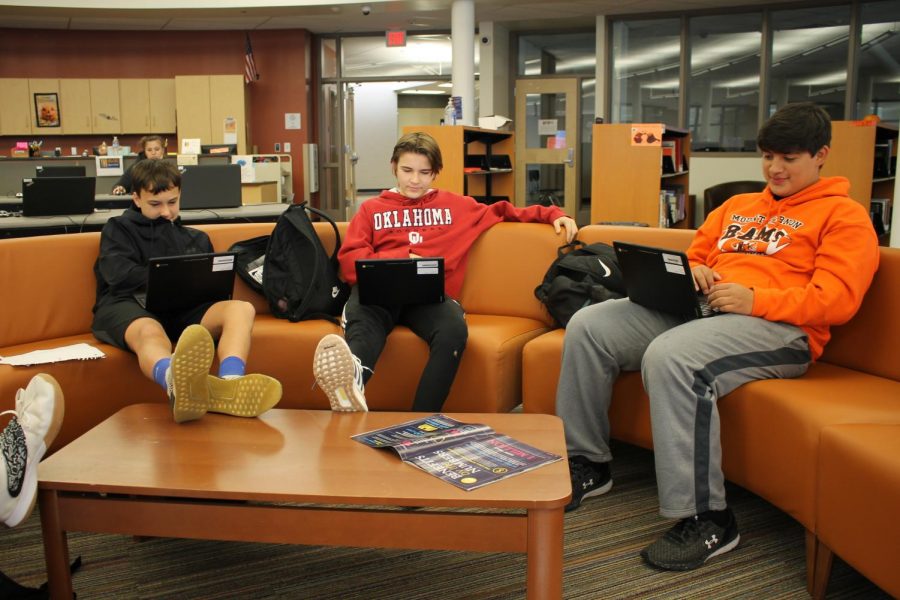Students Respond to New Chromebook Restrictions
Students work on their Chromebooks in the Media Center. Some students use the Media Center during study hall periods.
October 24, 2018
Chromebooks have undergone a few more changes, and access has narrowed.
Changes include disabling the USB port, Bluetooth capability, and changing the wallpaper image to the “Building A Better World, One Ram At A Time” logo.
Assistant Principal Sean Docherty explained the rationale behind the decision to implement these changes.
“Students were downloading malicious programs and installations that blocked the Impero monitoring system through the use of flash drives, so it became necessary to restrict the ability to transfer information. However this only affects items that can share outside information. Wireless mice, phone adapters, etc. are not affected,” Mr. Docherty stated.
With regard to Bluetooth and the wallpaper change, Mr. Docherty stated that it was a security issue.
“Bluetooth was being used to hook up to other devices and hotspots and bypass the school Wi-Fi and Impero. The Wallpaper was a security threat. Students were downloading wallpapers from at risk sites and Impero was notified of the breach,” said Mr. Docherty.
Several students expressed their frustration in response to these new changes, and Shelbie Lewis, ‘19, shared her reaction to the recent restrictions.
“I think that all the restrictions have been too much and too stressful. Everyday it seems like another thing is getting blocked and it’s getting ridiculous. I can’t seem to complete all my homework on [the Chromebooks] due to all the sites being blocked.” Lewis said.
Cullen Asbery, ‘20, reflected on the atmosphere the restrictions create.
“I sense a glum feel in the classrooms when everyone pulls out their Chromebooks and their screens are all the exact same,” said Asbery.
Asbery also commented on the obstacles he faced using the Chromebooks due to restrictive controls.
“Sometimes I’ll try to change the settings so I can read the screen easier, but the settings are blocked. I also cannot plug in a USB making me decide which class is in need of the limited storage space,” Asbery stated.
Many students feel as though they are being unfairly punished for the actions of a few.
Lauren Berry, ‘21, stated “Not all of us use the Chromebooks with bad intentions. They do not have to block every sense of communication. They shouldn’t punish the whole school for what a couple of the students are doing wrong.”
Mr. Docherty shed light on how the administrative team goes about making such changes.
“What we do is look at what are options are, and them try and find the least restrictive way to fix the issue and stay secure. We can spend anywhere from a week to a month discussing the issue before acting,” Mr. Docherty said.
Mr. Docherty added, “Keep in mind the only reason we make any changes to the accessibility is in regards to the security of the network, and the security of its users.”


